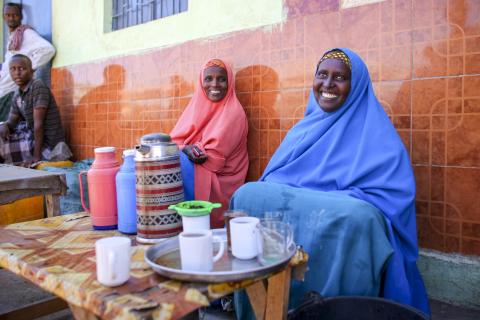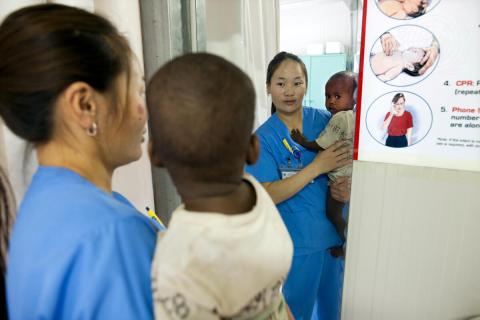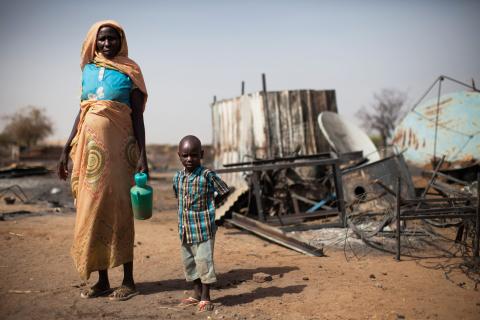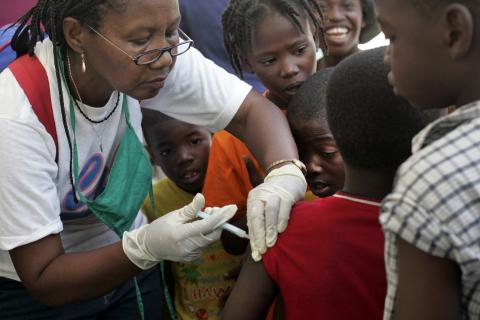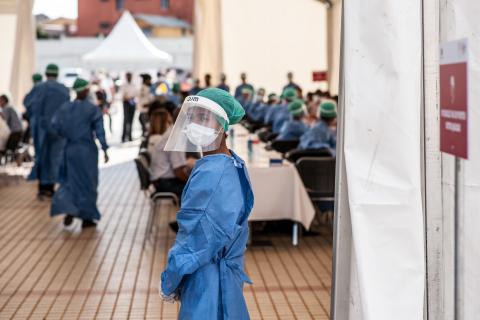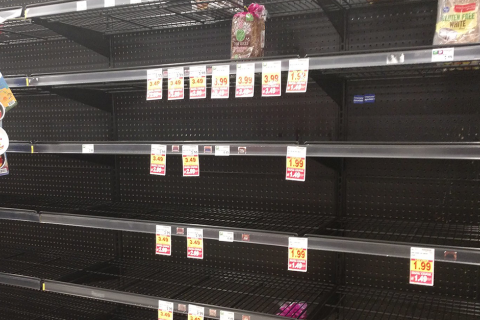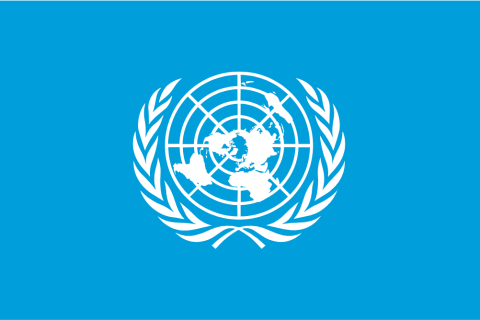UN/DESA Policy Brief #93: Social policy and social protection measures to build Africa better post-COVID-19
This policy brief reviews the socio-economic impacts of the COVID-19 crisis in Africa and presents the continent’s social protection responses.
UN/DESA Policy Brief #92: Leveraging digital technologies for social inclusion
COVID-19 is accelerating the pace of digital transformation. In so doing, it is opening the opportunities for advancing social progress and fostering social inclusion, while simultaneously exacerbating the risk of increased inequalities and exclusion of those who are not digitally connected.
UN/DESA Policy Brief #91: The politics of economic insecurity in the COVID-19 era
The COVID-19 crisis has served as a reminder of the extent of economic insecurity, even in countries and among groups that previously considered themselves secure. This is likely to have profound consequences, threatening countries’ ability to achieve the 2030 Agenda for Sustainable Development and its SDGs.
UN/DESA Policy Brief #90: A new global deal must promote economic security
Fears related to economic insecurity are on the rise. Changes in the world of work, together with globalization and technological breakthroughs, have benefited many people but are also putting many others at disadvantage or at risk. These long-standing trends, which have raised aspirations but also fears, are compounded by evolving threats, including those brought about by climate change and the COVID-19 pandemic.
UN/DESA Policy Brief #84: Achieving SDGs in the wake of COVID-19: Scenarios for policymakers
Establishment of robust universal healthcare and social protection systems should be taken as immediate goals, and efforts should be made to build upon the emergency measures taken during the COVID-19 crisis so as to reach these goals.
UN/DESA Policy Brief #81: Impact of COVID-19 on SDG progress: a statistical perspective
COVID-19 is having a devastating impact on all 17 Goals and threatening the achievements already made in
many areas. While the virus has impacted everyone, it is the poorest and most vulnerable who are affected
disproportionally by the pandemic.
UN/DESA Policy Brief #58: COVID-19: Addressing the social crisis through fiscal stimulus plans
Countries are quickly acting to counter its negative impact on employment and poverty, including through fiscal stimulus plans. Whether these plans will protect the most disadvantaged people and households over the long-term depends on their size, duration and on how measures are implemented.
UN/DESA Policy Brief #53: Reflection on development policy in the 1970s and 1980s
After almost three decades of remarkable progress since the end of the Second World War, economic conditions started to deteriorate in the 1970s. Economic growth slowed down in all parts of the world during the second half of the 1970s and the first half of the 1980s. Before the oil price shock of 1973, the annual growth of world gross product had been at 5.3 per cent, while during the rest of the 1970s, annual world growth reached only 2.8 per cent.
 Welcome to the United Nations
Welcome to the United Nations
